Plant Science and Technology
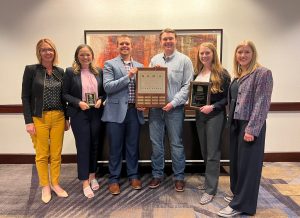
April 25, 2022
Taking home top honors
Mizzou NAMA team wins National Student Marketing Competition.

April 22, 2022
Connecting the Dots Between Soils and Plants
A double major, Khader Saleh is pursuing his passions for plants and horticulture.

April 20, 2022
Michelle Brooks Receives Mumford Award for Outstanding Staff at 2022 Celebration of Excellence
She has spent more than 20 years in CAFNR, keeping the greenhouse structures up to date through her keen technical knowledge.

April 20, 2022
Felix Fritschi Receives Roger L. Mitchell Fellow Award as Part of 2022 Celebration of Excellence
The award honors Roger L. Mitchell, a former dean of the MU College of Agriculture, Food and Natural Resources, by recognizing those who elevate the College through collaboration and innovative thinking.

April 7, 2022
Top Cited Article in Agronomy Journal
Kelly Nelson, Gurpreet Kaur and Gurbir Singh’s paper, Impacts and strategies for crop production in waterlogged or flooded soils: A review, was named a top cited article in the Agronomy Journal. This work has a significant impact in Missouri and globally since flooding is one of the most damaging abiotic stresses besides drought.

Feb. 7, 2022
Eduardo Beche Receives Foundation for Soy Innovation Scholarship
Eduardo Beche, research scientist in Plant Science & Technology, was selected to receive the 2021 Soy Innovation Scholarship through the Foundation for Soy Innovation. The scholarship will help fund the recipients’ education and research. Beche’s research centers on yield and adaptability of soybean traits. Beche plans to use the $1,000 scholarship to attend the World Soybean Research Conference 11 in Novi Sad, Serbia.
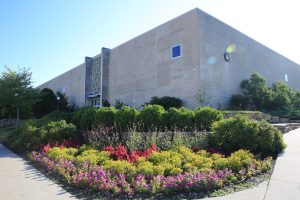
Feb. 4, 2022
William R. Lamberson Distinguished Graduate Student Awards Announced
William R. Lamberson Distinguished Graduate Student Awards Announced The William R. Lamberson Distinguished Doctoral Dissertation and MS Thesis Awards have been announced. In the fall, each division can submit one nomination for a doctoral dissertation and MS thesis for this award. This year’s award winners are listed below: Thesis Award Student Name: Destiny N. Johns Thesis Title: Conceptus Interferon Gamma is Essential for Pregnancy Maintenance in the Pig Advisor Name: Rodney Geisert Division: Division of Animal Sciences Dissertation Award Student Name: Eric Oseland Dissertation Title: Research to advance our understanding of off-target dicamba movement in United States Agriculture Advisor Name:…
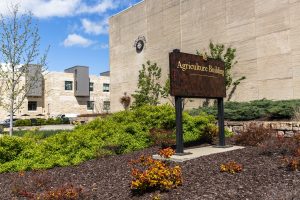
Feb. 4, 2022
Katie Harris Wins 2022 Katherine S. McCarter Graduate Student Policy Award
Katie Harris, PhD student in the Division of Plant Science and Technology, was selected for the 2022 Katherine S. McCarter Graduate Student Policy Award (GSPA) through the Ecological Society of America (ESA) This award provides graduate students with the opportunity to participate in a virtual Congressional Visits Day. These students learn about the legislative process and federal science funding before meeting virtually with their members of Congress to discuss the importance of federal investments in the biological and ecological sciences. GSPA recipients will also explore policy career options.
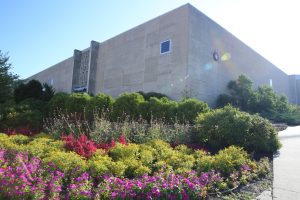
Jan. 27, 2022
CAFNR Joy of Discovery Seed Grant Program Winners Announced
The first batch of proposals funded by CAFNR's Joy of Discovery Seed Grant Program has been announced. The Joy of Discovery Seed Grant Program supports nascent, collaborative, multi transdisciplinary research with the goal of developing a competitive proposal for federal funding.
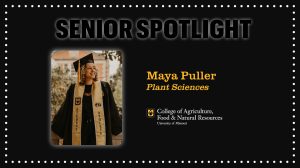
Dec. 13, 2021
Senior Spotlight: Maya Puller
Puller will graduate with a degree in plant sciences.